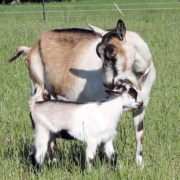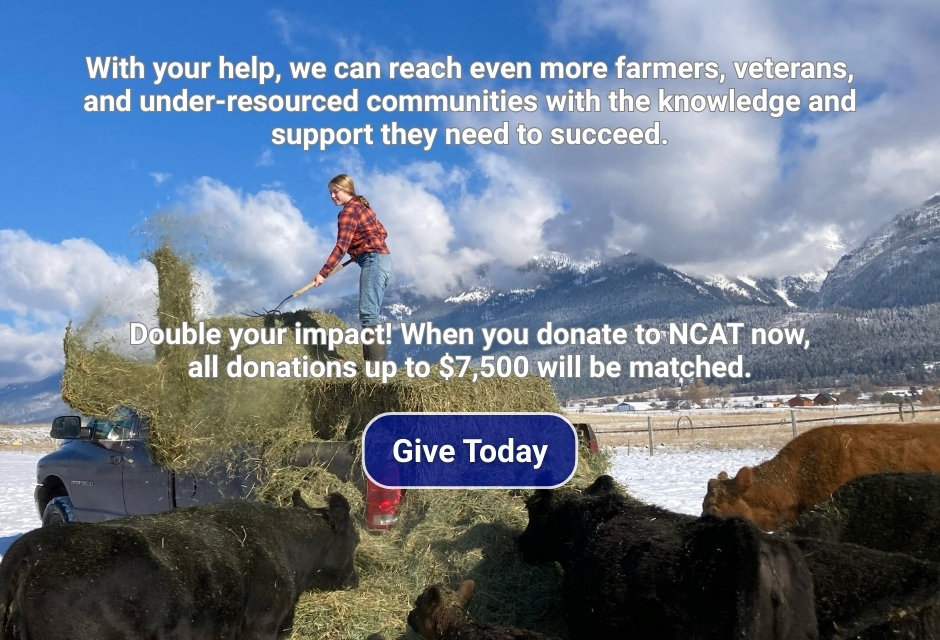Healthy Animals, Happy Farm: Strategies for Sheep and Goat Care
 Print This Post
Print This Post
By Linda Coffey, NCAT Livestock Specialist
If you have raised sheep or goats, you likely have experienced the joy of “lamb races,” in which a group of lambs will suddenly get the urge to run and play, just for the fun of it. This week, I watched for at least 10 minutes while first five and then 10 and finally at least 20 lambs surged into the barn, circled around and raced at full speed back to the pond, then circled back…over and over. Oh, it does my heart good!
What is not so much fun is when you have an animal that does not feel well. An animal that is lethargic, disinterested in grazing or in being with the flock, is depressed and slow-moving or having trouble standing is worrisome. Watching one of those animals makes me feel anxious to fix the problem.
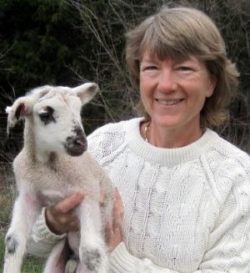 Keeping Your Animals Healthy
Keeping Your Animals Healthy
Just as in human health issues, however, it’s much better to PREVENT the problem than to try to fix it. So, how do you keep animals healthy? Following are some tried-and-true ways.
Consider the source
Many of us pay good money for our problems with animal health. If we purchase animals from a sale barn, we may be bringing home footrot or soremouth along with our animals. Of course, you may also get diseases included when you purchase from a farm. But at least you have the chance to inspect premises, look at the whole flock or herd, and ask questions of the farmer. For best results, only buy from a herd or flock that appears to be healthy and that is managed the same way you intend to, because there will be less transition shock. Also, purchasing animals that are raised in your own area means they will be familiar with the plants on your farm, and will likely know to avoid toxic plants.
Provide good nutrition
Healthy animals will stay healthy if their immune systems are strong, and having enough of the right kind of feed is vital. For ruminants, this means forage, and plenty of it, to keep the rumen microbes healthy. Of particular importance when we think about nutrition: energy, protein, water, and minerals, including zinc and copper for immune system function. See the links below to learn more about nutrition for sheep and goats.
Avoid too many disease organisms
An animal with a good functioning immune system can be overwhelmed if they are exposed to too many pathogens, such as internal parasite larvae. So it is important for managers to pay attention to sanitation, grazing management, and avoiding overcrowding. This means we have to move animals off the pasture and let it rest. We have to respect the carrying capacity of the land in order to both provide good nutrition and avoid exposing our animals to too many internal parasite larvae. The great news is that providing a healthier situation for the grazing animals also is helpful to the “animals” in the soil. By not overgrazing, we give the soil life an edge. Win-win!
On the other hand, overgrazing subjects the grazing animals to more parasite larvae, because most parasite larvae are on the lower part of the grass blade, close to the soil. Overgrazing also exposes the soil to erosion and direct sunlight. Bare soil loses moisture, reducing the plants’ ability to regrow, and harming the capacity of the pasture to support the flock or herd. The result is devastating to production and to health, as animals are undernourished and also overexposed to parasite larvae. Lose-lose!
Focus on Grazing Management
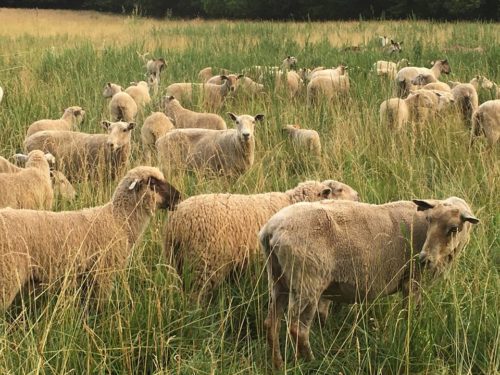 I’ve already said it, but this is so important it deserves its own point. Learn all you can about grazing management. The Managed Grazing Tutorial is a free resource that will teach you eight important lessons about grazing, beginning with goals and ending with monitoring. In addition to that, see the ATTRA Sustainable Agriculture blog on Adaptive Grazing and the ATTRA publications under “Pasture and Grazing” and “Animal Health and Nutrition.” Knowledge is power! Check out On Pasture, the online magazine about grazing. See also the Food Animal Concerns Trust (FACT) webinars for a series by Sarah Flack and some from NCAT’s own Lee Rinehart and Dave Scott. And check out the work of Understanding Ag, which works in regenerative agriculture and has a number of inspiring resources on its website.
I’ve already said it, but this is so important it deserves its own point. Learn all you can about grazing management. The Managed Grazing Tutorial is a free resource that will teach you eight important lessons about grazing, beginning with goals and ending with monitoring. In addition to that, see the ATTRA Sustainable Agriculture blog on Adaptive Grazing and the ATTRA publications under “Pasture and Grazing” and “Animal Health and Nutrition.” Knowledge is power! Check out On Pasture, the online magazine about grazing. See also the Food Animal Concerns Trust (FACT) webinars for a series by Sarah Flack and some from NCAT’s own Lee Rinehart and Dave Scott. And check out the work of Understanding Ag, which works in regenerative agriculture and has a number of inspiring resources on its website.
Stop Selecting Sissy Sheep
That’s a quote from Dr. Gareth Bath of South Africa, who is a member of the American Consortium for Small Ruminant Parasite Control (ACSRPC) and has a gift for education. It’s a valid point for all livestock. When we keep the strong genetics in our flock, and send away the weak ones, over time we can greatly improve the strength of our flock. This is vital if you want to enjoy your animals instead of feeling anxious and worried. See the ATTRA publications about animal selection and see the Best Management Practices tipsheets at wormx.info to tie together these concepts.
Work With a Veterinarian
Yes, that will cost money. But a veterinarian can help with your education, and you can help with hers by giving her the opportunity to work as a partner with you. See below for resources that can help them learn more about sheep or goats, since they may not have had a lot of experience with those animals. Still, their background and training means they have tools that can help sort out problems. It’s disheartening to lose animals, but if you learn something each time, soon you should not be having many losses.
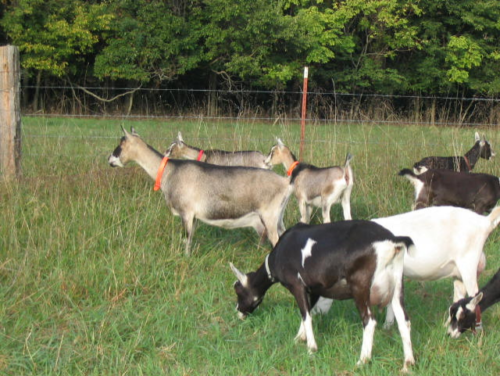 Observation Skills: the Key to Healthy Animals
Observation Skills: the Key to Healthy Animals
For all of the above points, the key is your observation skills. And it takes time, experience and mentoring to learn to see what is there. For example, when I take a walk with my best friend in the country, she may comment on the pretty green grass. I am seeing not only the color but how short it is, what plants are in the pasture, whether or not it’s being grazed now, how soon it will be ready to safely graze, and many other aspects of the pasture. We both “see.”
Here are two videos that may help you see more. In these videos, Dr. Joan Burke (ARS/USDA) (and member of the ACSRPC) and I look at a flock in varying stages of well-being. Joan will tell you what she is seeing, and that can help you see and understand more about your own flock or herd. The concepts are relevant for other livestock in addition to sheep.
Managing Your Flock, Part 1: Diagnosing and Treating Sick Sheep
Managing Your Flock, Part 2: Preventing Internal Parasites
To learn more about encouraging health in livestock, see the resources below. May your days include frisky animals that have vibrant health!
Related ATTRA Resources
Podcast: Small (Ruminant) Talk: All About Health
In this episode, Margo Hale (Southeast Regional Office Director and Livestock Specialist) and I discuss animal health. We cover how to encourage health, prevent illness, work with a veterinarian, and manage so that your flock or herd is mostly trouble-free. We discuss tools and supplies they like to have on hand, and share the contents of the first aid kit of Dave and Jenny Scott, Montana Highland Lamb. Dave is a Livestock Specialist in NCAT’s Rocky Mountain West office.
Blog 6. Adaptive Grazing: You Can Do It
Tipsheet: Organic Approach to Animal Health
An Illustrated Guide to Sheep and Goats
Sheep and Goats: Frequently Asked Questions
Goats: Sustainable Production Overview
Managing Internal Parasites: Success Stories
Tools for Managing Internal Parasites in Sheep and Goats: Pasture Management
Other Resources
The American Consortium for Small Ruminant Parasite Control
The American Association of Small Ruminant Practitioners
Introduction to Goat Nutrition by Steve Hart of Langston University
American Sheep Industry Association’s Best Practices Factsheets
Sheep and Goat Medicine. 2002. Edited by D. G. Pugh. W.B. Saunders Company, an Imprint of Elsevier Science, Pennsylvania, PA. This book is designed to provide a text on sheep and goat medicine, nutrition, surgery, and reproduction in an easily usable form; language is more accessible, and there are lots of helpful charts, tables, illustrations, and photos. It includes chapters on handling and examination of sheep and goats, feeding and nutrition (with practical examples), and flock health. 468 p.
Please contact Linda or one of NCAT’s other sustainable agriculture specialists if you have questions. Email askanag@ncat.org or call 800-346-9140.
This blog is produced by the National Center for Appropriate Technology through the ATTRA Sustainable Agriculture program, under a cooperative agreement with USDA Rural Development. ATTRA.NCAT.ORG.

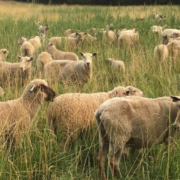
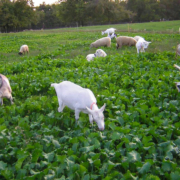

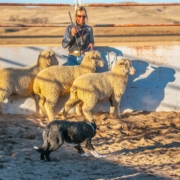
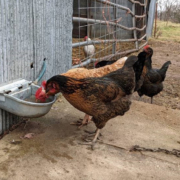
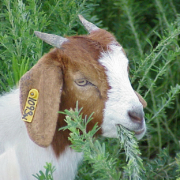
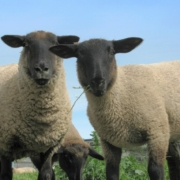
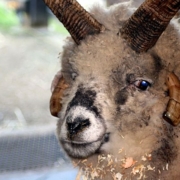 Jean Ogdon/ Creative Commons
Jean Ogdon/ Creative Commons